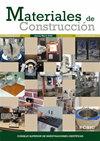不同配合比水泥砂浆的热性能
IF 1.5
4区 工程技术
Q3 CONSTRUCTION & BUILDING TECHNOLOGY
引用次数: 38
摘要
建筑物供暖和制冷所需的能源很大程度上取决于建筑材料的热性能。水泥砂浆是一种常用的建筑材料,在建筑中应用广泛。本研究的主要目的是评估水泥砂浆在各种等级(水泥:砂比在1:2和1:8之间)下的导热性、热容量和热扩散性。由于从水泥砂浆的物理力学性能来预测其导热系数和扩散系数的信息不足,本文还讨论了导热系数、扩散系数与密度、抗压强度、吸水率和孔隙率之间的关系。结果表明,对于28天抗压强度在6-60 MPa范围内的水泥砂浆,其导热系数、比热系数和热扩散系数分别为1.5-2.7 W/(m.K)、0.87-1.04 kJ/kg。K和0.89-1.26 (x10 -6 m2 /s)。扫描电镜(SEM)结果显示,不同灰砂比的水泥试样孔径变化范围为18 ~ 946 μm。水泥砂浆的孔隙率对其热物理性能有显著影响。因此,在密度和抗压强度较高的水泥砂浆样品中,导热系数和热扩散系数较大。本文章由计算机程序翻译,如有差异,请以英文原文为准。
Thermal properties of cement mortar with different mix proportions
The energy required for the heating and cooling of buildings is strongly dependant on the thermal properties of the construction material. Cement mortar is a common construction material that is widely used in buildings. The main aim of this study is to assess the thermal properties of cement mortar in terms of its thermal conductivity, heat capacity and thermal diffusivity in a wide range of grades (cement: sand ratio between 1:2 and 1:8). As there is insufficient information to predict the thermal conductivity and diffusivity of a cement mortar from its physical and mechanical properties, the relationships between thermal conductivity and diffusivity and density, compressive strength, water absorption and porosity are also discussed. Our results indicate that, for a cement mortar with a 28-day compressive strength in the range of 6–60 MPa, thermal conductivity, specific heat and thermal diffusivity are in the range of 1.5–2.7 W/(m.K), 0.87–1.04 kJ/kg.K and 0.89–1.26 (x10 -6 m 2 /s), respectively. The scanning electron microscope (SEM) images showed that pore size varied from 18 μm to 946 μm for samples with different cement-to-sand ratios. The porosity of cement mortar has a significant effect on its thermal and physical properties. For this reason, thermal conductivity and thermal diffusivity was greater in cement mortar samples with a higher density and compressive strength.
求助全文
通过发布文献求助,成功后即可免费获取论文全文。
去求助
来源期刊

Materiales de Construccion
工程技术-材料科学:综合
CiteScore
3.20
自引率
9.50%
发文量
38
审稿时长
>12 weeks
期刊介绍:
Materiales de Construcción is a quarterly, scientific Journal published in English, intended for researchers, plant technicians and other professionals engaged in the area of Construction, Materials Science and Technology. Scientific articles focus mainly on:
- Physics and chemistry of the formation of cement and other binders.
- Cement and concrete. Components (aggregate, admixtures, additions and similar). Behaviour and properties.
- Durability and corrosion of other construction materials.
- Restoration and conservation of the materials in heritage monuments.
- Weathering and the deterioration of construction materials.
- Use of industrial waste and by-products in construction.
- Manufacture and properties of other construction materials, such as: gypsum/plaster, lime%2
 求助内容:
求助内容: 应助结果提醒方式:
应助结果提醒方式:


